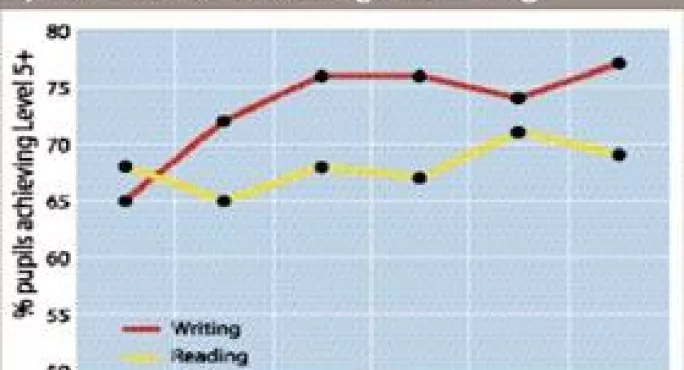Teachers need to achieve a “step change” in English over the next few years, Jim Knight, the schools minister, said this week in the wake of the key stage 3 results.
He set out a raft of measures - from encouraging more boys to read for pleasure to moves on “personalising” the curriculum - by which he hopes the change can be brought about.
The comments came as this year’s provisional key stage 3 results showed a slight dip in headline scores in English and science. But they also showed maths marks rising to equal the best ever figures.
Reading scores fell from 71 to 69 per cent, while writing performance has improved dramatically at key stage 3 over the same period, from 74 per cent in 2007 to 77 per cent this year. The lack of progress in reading goes a long way to explaining why ministers have fallen so far short of their English target at key stage 3, which stood at 85 per cent for 2007. Overall, the English figure stands at just 73 per cent.
Mr Knight said the extra work schools had done to improve pupils’ writing in key stage 3 may be at the expense of their progress in reading.
He refused to accept that English results had reached a high-water mark in recent years, insisting that there is still room for significant improvement.
“We really need to achieve some sort of step change to move on from where we have been for the last four years in English,” he said.
“I don’t think we have plateaued. The step change is something we can and will achieve.”
Mr Knight said four initiatives would help the statistics rise.
The first was one-to-one and small group tuition for pupils who are falling behind national expectations in English and maths, which began last year in some schools.
This is being piloted in more than 400 schools alongside trials of a new system of national curriculum testing. Mr Knight said the initial findings were encouraging.
Other changes, he said, were the Government’s investment in formative assessment or Assessment for Learning; the new focus of the National Strategies on English and maths; and new flexibilities in the national curriculum.
This is being stripped back from September to allow schools more time to focus on cross-curricular teaching and to spend time reinforcing English and maths.
Mr Knight also commented that it was important to get more children, particularly boys, to enjoy reading for pleasure.
This week’s results show the proportion of pupils achieving the expected levels in English, maths and science broadly unchanged over the past three years. Nationally, 73 per cent of pupils achieved the expected level five or above in English this summer, compared to 74 per cent last year.
It was also 74 per cent in 2005, meaning there has been a one percentage point fall since then.
In maths, the corresponding results went up from 76 per cent last year to 77 per cent this summer, while in science, they fell from 73 to 71 per cent.
The national figures were published despite only 84 per cent of pupils’ results in English being received at the time the statistics were calculated in late July. For maths and science, the respective figures were 94 per cent each.
The figures were so incomplete that results for individual local authorities are also being held back, until October.





